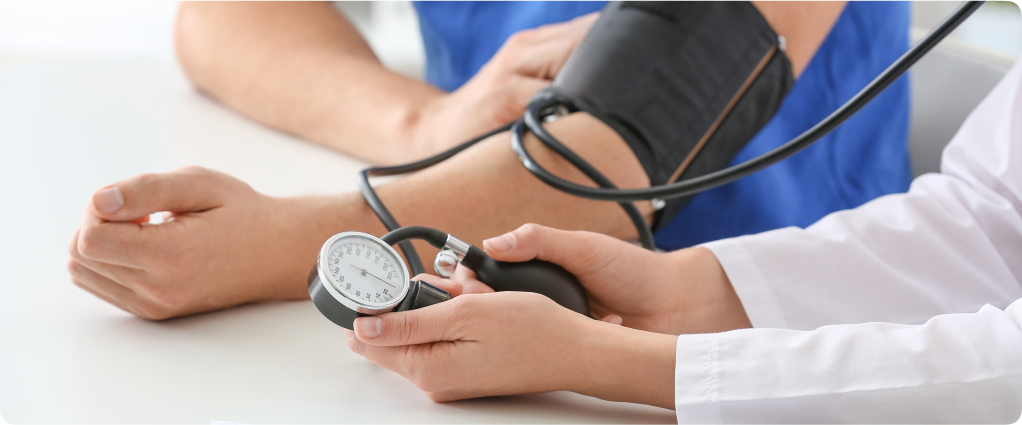High Blood Pressure
Understanding High Blood Pressure: Causes, Symptoms, and Management
High blood pressure, also known as hypertension, is often called the "silent killer" because it typically shows no symptoms until significant damage has occurred. As a primary care provider, I’ve seen firsthand the impact of untreated hypertension on patients’ overall health. This post will explore what high blood pressure is, its causes, symptoms, and how you can manage it effectively.
What is High Blood Pressure?
Blood pressure is the force of blood pushing against the walls of your arteries as your heart pumps. High blood pressure occurs when this force is consistently too high, which can lead to severe health issues, including heart disease, stroke, and kidney problems. Blood pressure is measured in millimeters of mercury (mm Hg) and is recorded with two numbers: systolic (pressure during heartbeats) and diastolic (pressure between beats). A reading of 130/80 mm Hg or higher is considered hypertensive.

Causes of High Blood Pressure
Several factors can contribute to the development of hypertension:
1. Genetics
Family history plays a significant role in your risk of developing high blood pressure.
2. Diet
A diet high in salt, fat, and cholesterol can increase your risk.
3. Lifestyle
Lack of physical activity, excessive alcohol consumption, and smoking are significant risk factors.
4. Stress
Chronic stress can lead to temporary spikes in blood pressure.
5. Medical Conditions
Conditions like obesity, diabetes, and sleep apnea can contribute to hypertension.

Symptoms of High Blood Pressure
One of the challenges with high blood pressure is that it often presents with no symptoms. However, when symptoms do occur, they might include:




These symptoms typically appear when blood pressure levels have reached a dangerously high level.
Complications of Untreated Hypertension
If left untreated, high blood pressure can lead to severe health problems:
1. Heart Disease
Hypertension can cause coronary artery disease, heart failure, and left ventricular hypertrophy.
2. Stroke
High blood pressure can lead to the hardening and thickening of arteries, leading to strokes.
3. Kidney Damage
Hypertension is one of the leading causes of kidney failure.
4. Vision Loss
High blood pressure can damage the blood vessels in the eyes, leading to vision loss.
5. Cognitive Issues
Hypertension can contribute to cognitive decline and increase the risk of dementia.

Management and Treatment of High Blood Pressure
Managing high blood pressure involves a combination of lifestyle changes and, if necessary, medication:
1. Dietary Changes
Reducing salt intake, eating a balanced diet rich in fruits and vegetables, and reducing saturated fats can significantly lower blood pressure.
2. Exercise
Regular physical activity helps maintain a healthy weight and lower blood pressure.
3. Medications
Depending on the severity, your doctor may prescribe medications such as ACE inhibitors, beta-blockers, diuretics, or calcium channel blockers.
4. Stress Management
Techniques such as mindfulness, meditation, and deep breathing can help manage stress levels.
5. Regular Monitoring
Keeping track of your blood pressure at home and having regular check-ups with your healthcare provider is essential for managing hypertension.
Conclusion
High blood pressure is a serious condition, but with the right lifestyle changes and medical intervention, it can be managed effectively. As a primary care provider, my goal is to help my patients understand their health better and take proactive steps toward preventing and managing hypertension. If you have concerns about your blood pressure, don’t hesitate to schedule an appointment.
